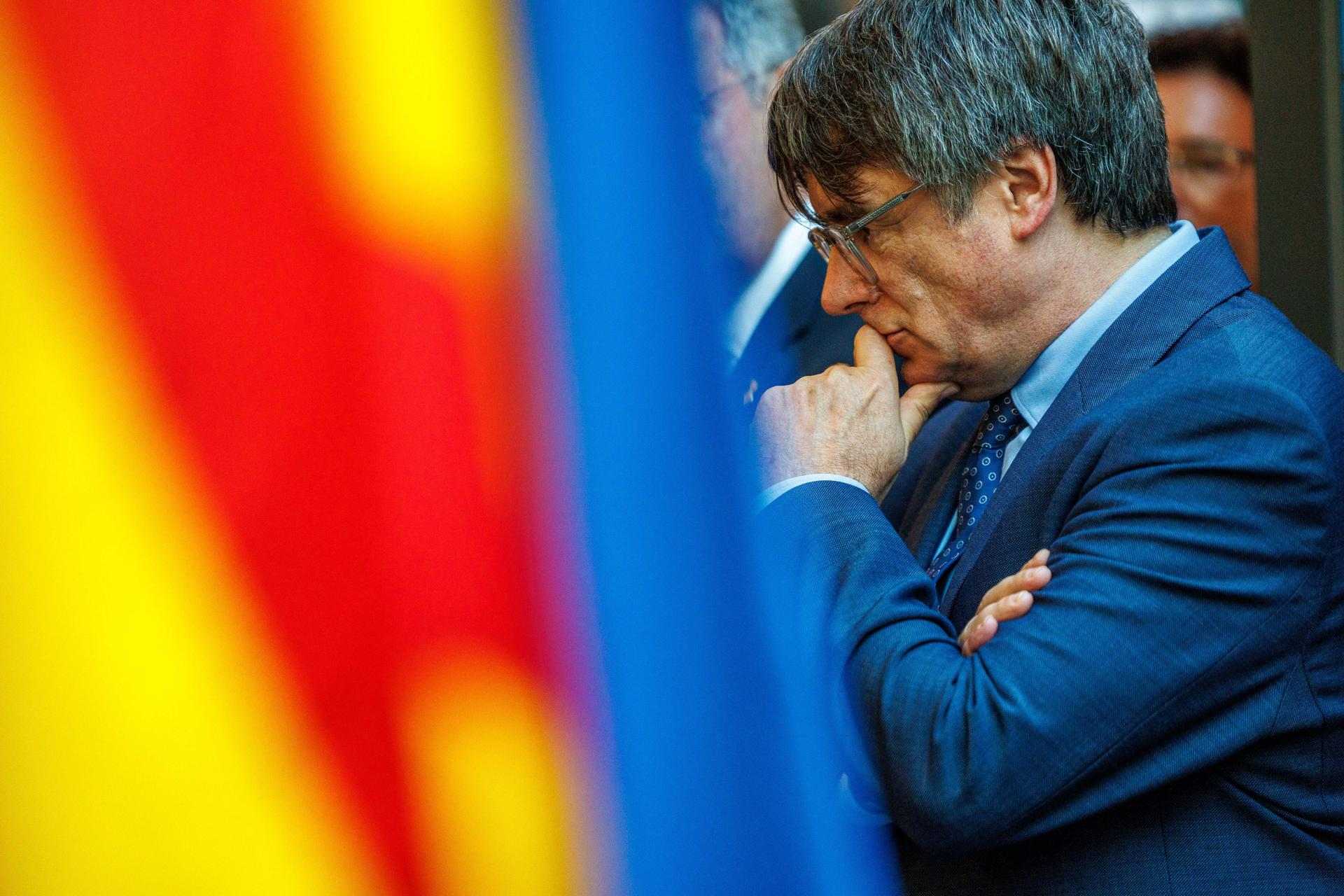Carles Puigdemont allowed himself some irony this Thursday when replying to Spain's former Socialist (PSOE) prime minister, Felipe González, who has courted controversy in recent weeks by criticizing Pedro Sánchez - also a Socialist - over his possible acceptance of an amnesty on independence process prosecutions as part of an agreement to invest Sánchez as head of a new government. In a tweet, the Together for Catalonia (Junts) MEP mused that there were some politicians whose statements can "raise the price of bread", but, on the other hand, there are others who "raise the price of quicklime". He attached a Google Trends graph showing how the interest of Spanish internet users in the aforementioned caustic material, scientifically known as calcium oxide, has had a minor surge. The reference is directly directed against Felipe González, referring to the kidnapping, torture and murder by the GAL, the state-run death squad that operated when González was prime minister, of two members of the ETA terrorist group, José Antonio Lasa and José Ignacio Zabala, whose bodies were found buried in quicklime in 1985.
Hi ha polítics que quan parlen fan pujar el preu del pa, i d’altres que fan pujar el preu de la calç viva.
— krls.eth / Carles Puigdemont (@KRLS) September 21, 2023
De moment, sembla que hi ha hagut un repunt en l’interès espanyol per l’òxid de calci… pic.twitter.com/kMsw9tfcmG
"Spain is a narrative"
The president-in-exile also railed against the Spanish media, of whom he affirmed that "they save me a lot of work". Puigdemont noted that every day he learns something new from the press about the investiture negotiations he himself is supposedly conducting, as well as about his own "thoughts", and, he say, "I discover many things that I didn't know". In another social media post this Thursday, he states that when he sees "the efforts to control the story", it only confirms "the impression that Spain is not a nation, but a narrative".
La premsa espanyola m’estalvia un munt de feina. Cada dia m’assabento del que estic negociant i del que penso, i descobreixo moltes coses que desconeixia 🤣.
— krls.eth / Carles Puigdemont (@KRLS) September 21, 2023
Veient els esforços pel control del relat, es confirma la impressió que Espanya no és una nació, sinó una narració.
González and Guerra against the amnesty
In the latest episode featuring members of the Socialist "old guard" who are upset by their party's willingness to consider the amnesty measure, the former Spanish deputy PM, and ex-PSOE number 2, Alfonso Guerra, has joined forces with his old boss Felipe González to criticize Sánchez and the amnesty. This Wednesday, they appeared together at a Madrid presentation of Guerra's new book, La rosa y las espinas (The Rose and the Thorns), in an event at which they made clear their continuing dissent. Alfonso Guerra took the opportunity to label Pedro Sánchez a "dissident" for backing what are, in his opinion, views contrary to those of the current PSOE grass roots. He insisted that the amnesty plan is "a deliberate humiliation to the generation of the Transition", a "condemnation of democracy and of the Spaniards who voted for the Constitution", and a law that would be, in itself, "unjust" because it "treats traitors as democrats".
For his part, Felipe González compared the right to self-determination with the authoritarianism of the USSR. "Stalin also 'self-determined' everyone", he pointed out sarcastically. "We cannot allow blackmail, and even less if it comes from minorities on the way to extinction", said the former Spanish PM in clear reference to the independence movement and the power it could exercise over the PSOE in the current legislature. González believes that approving an amnesty law at present would be in contradiction with the 2017 Spanish government decision to intervene directly in the Catalan government. "It could even cause them to say that they no longer need a referendum, because they have already held one, and now they would say so with more justification", he argued.
The PSOE condemns “disloyalty" of its own old guard
However, it is not just pro-independence voices who have spoken out against Felipe González and Alfonso Guerra. This Thursday, PSOE ministers and other leaders have seen the need to loudly condemn the anti-Catalan theses put forward by the historic tandem that once led their party. "The ones who are disloyal are those who don't respect the majority of their party, isn't that it?" argued the Socialists' organizational secretary, Santos Cerdán, in the corridors of the Congress of Deputies, wanting to make clear the legitimacy of Pedro Sánchez at the head of the PSOE.
Later it was the Spanish government spokesperson, Isabel Rodríguez, who urged González and Guerra to "respect" the current Socialist leadership. "Everyone has the right to use their own words, and they are the ones who have taught us young people to respect our elders; I respect them as the Socialist leaders they were; and for this reason I also claim the need to respect those who now lead the PSOE", she stated in an interview with TV network La Sexta.

